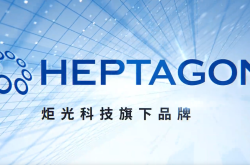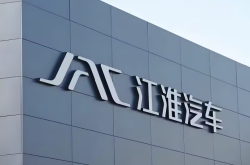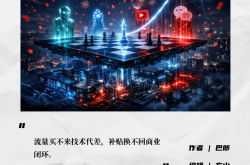The State Council's Initiative to Combat 'Internal Competition' in the Automobile Industry Holds Significant Value
![]() 07/25 2025
07/25 2025
![]() 690
690
The "internal competition" within the automobile industry, which has persisted for over two years, began to ease due to the stringent measures enacted by relevant government bodies since the start of June. However, this rectification process is not instantaneous and requires sustained effort. On July 16, the State Council Executive Meeting specifically outlined clear directives regarding the "internal competition" within the new energy vehicle sector, emphasizing the promotion of high-quality development, addressing irrational competitive practices, balancing short-term and long-term measures, and effectively standardizing the competitive landscape in the industry.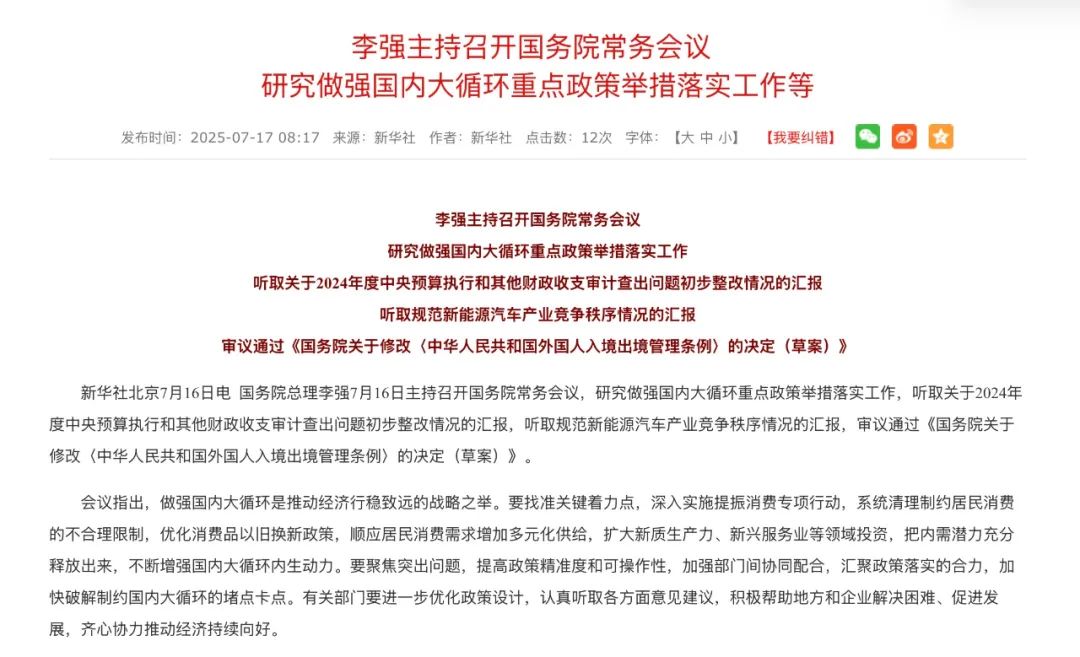
The "internal competition" referenced in the State Council Executive Meeting's discussion pertains to the entire automobile industry. To implement these directives, the Ministry of Industry and Information Technology, the National Development and Reform Commission, and the State Administration for Market Regulation jointly convened a symposium on July 18, further deploying strategies to standardize competition within the new energy vehicle sector. Leaders from 17 prominent auto companies, the China Association of Automobile Manufacturers, relevant local industrial and information technology departments, and other entities attended this meeting.
The symposium emphasized the need for industry players to align their thoughts and actions with the decisions and deployments of the Party Central Committee, diligently executing the spirit of the State Council Executive Meeting, and fostering the healthy and sustainable growth of the industry.
Firstly, it called for enhanced supervision and inspection, including robust monitoring of product pricing, consistency checks, shortened supplier payment terms, specialized rectification of online chaos, product quality oversight, sampling inspections, and defect investigations to guarantee product safety and reliability.
Secondly, it advocated for improving long-term mechanisms by refining policy measures, strengthening the construction of a unified national market, and fostering quality enhancement and industrial upgrading. Establishing an exchange and consultation mechanism with new energy vehicle enterprises, actively listening to concerns, suggestions, and appeals, and fostering a favorable development environment were also highlighted.
Thirdly, it stressed the importance of strengthening standards guidance by accelerating the introduction of standards such as new energy vehicle power consumption limits and battery recycling and utilization safety. This aims to guide enterprises in deepening technological innovation, continually enhancing product quality and safety levels, and boosting their own competitiveness.
Fourthly, it emphasized the need for industry self-discipline, urging industry associations to promote legal, fair, honest, proper, and orderly competition. Jointly resisting online chaos like "internet water armies" and "black PR" was encouraged to create a positive, upward, civilized, and orderly development environment.
This is the third time in less than two months that the Ministry of Industry and Information Technology and three other ministries have convened a meeting to address "internal competition" in the automobile industry. On June 3, as a concrete step to implement the directives of central leadership, the heads of the Ministry of Industry and Information Technology, the National Development and Reform Commission, and the State Administration for Market Regulation collectively interviewed the heads of 17 key domestic auto companies on rectifying the "internal competition" in the new energy vehicle sector.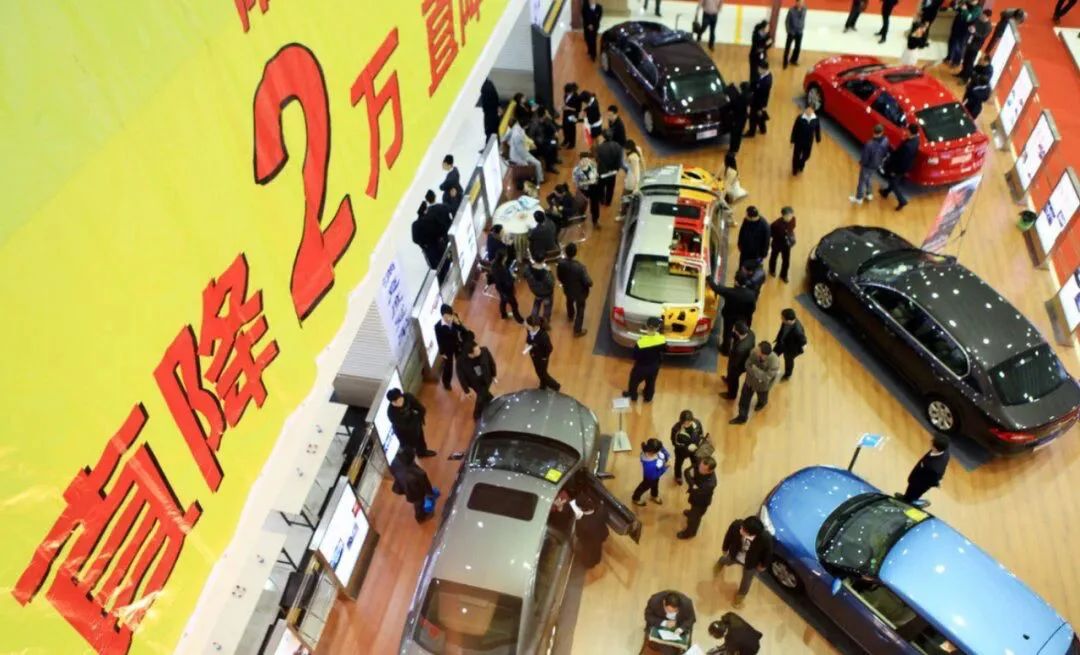
The three ministries and commissions jointly urged auto companies to immediately correct promotional activities that reduced prices, promptly halt recently announced promotional activities, and strictly adhere to the "Price Law of the People's Republic of China," the "Anti-Unfair Competition Law of the People's Republic of China," and the "Product Quality Law of the People's Republic of China." The auto company leaders present at the meeting pledged not to engage in price wars or internal competition. On July 8, the three ministries and commissions reconvened the heads of 17 auto companies to review progress since the initial interview. Together with the July 18 symposium, this marks the third relevant meeting in less than two months. Under the personal inquiry of central leadership, relevant government departments, industry associations, and enterprises have collaborated to combat vicious competition in the automobile industry.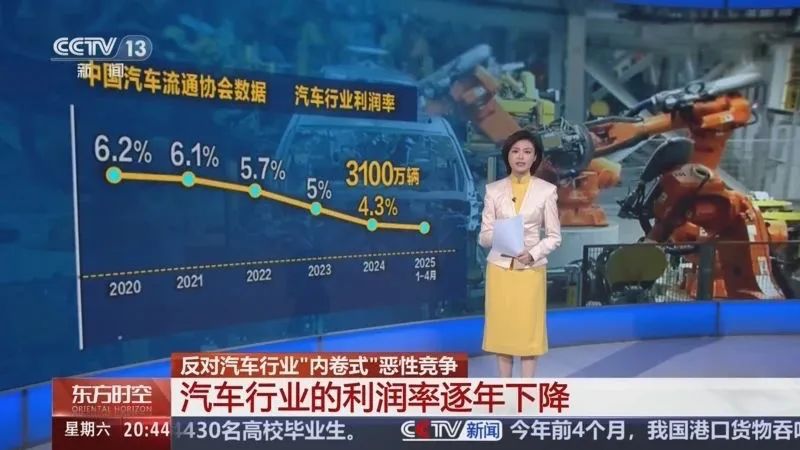
From June onwards, relevant government departments have introduced a series of specific measures to regulate market competition. Some auto companies have voluntarily reduced sales targets and abandoned aggressive growth strategies. Others have shifted focus to internal potential development, ceasing price wars. Some have restored normal car prices or even increased them. Over a dozen auto OEMs have issued statements committing to shortening supplier payment terms to within 60 days. Guangzhou Automobile Group, alongside its five major brands, solemnly promised to ensure dealer rebates within two months, alleviating financial pressure on dealers. However, it's crucial to note that the battle to rectify "internal competition" in the automobile industry has just begun and will require time and persistent effort to achieve complete success. Combating 'internal competition' in the automobile industry is integral to national economic development. The State Council Executive Meeting's special deployment on this issue signifies a significant measure, standing at the height of the overall economy, gaining deep insights into the industry's context, and ensuring the healthy development of China's automobile industry.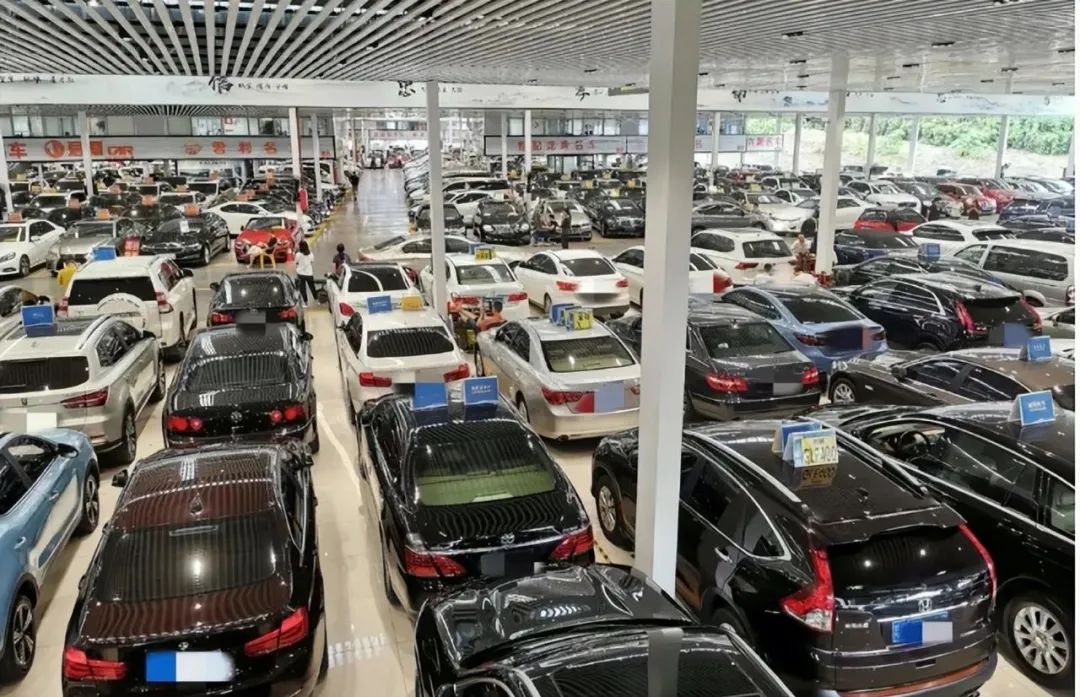
After years of rapid expansion, China's automobile industry has transitioned from an era of incremental competition to a stage of stock competition. Under "internal competition," enterprises get trapped in a vicious cycle of price wars to vie for limited market share, leading to severely compressed profits and drastically reduced incentives for R&D investment and technological innovation. If this persists, industrial upgrading will be hampered, and product quality improvement will be weak, impacting not only the survival of auto companies but also dragging down the coordinated development of the entire upstream and downstream industrial chain, from component suppliers to after-sales service providers. The State Council's deployment aims to break this deadlock of inefficient internal consumption, guiding the industry back to a rational competitive path, positioning itself accurately based on market demand, delving into technology research and development, and product differentiation, thereby reshaping a healthy and sustainable industrial ecology. The automobile industry is a pillar of the national economy, with its industrial chain encompassing steel, rubber, electronics, and numerous other sectors. A downturn in the automobile industry can trigger a domino effect, impacting the stable operation of the industrial economy and dragging down GDP growth. Stabilizing the automobile industry is tantamount to stabilizing economic fundamentals. By standardizing market competition, this deployment to combat 'internal competition' unleashes the vitality of automobile consumption, drives a steady production recovery, injects robust momentum into economic growth, and ensures employment and livelihood stability.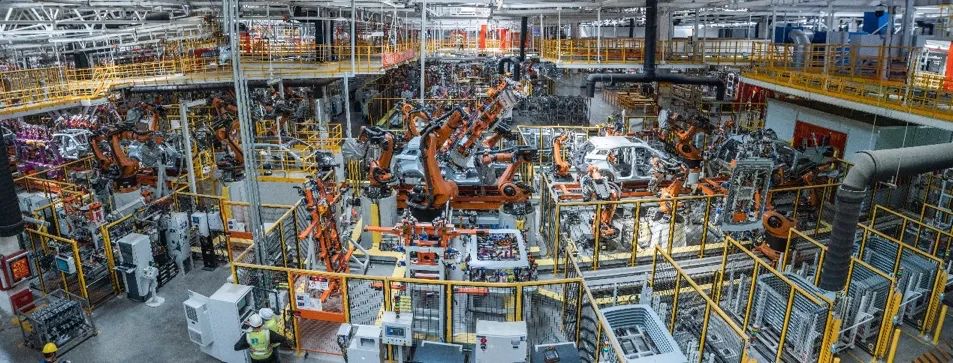
Automobile consumption is a crucial aspect of stimulating domestic demand. The State Council's efforts to rectify vicious competition in this field aim to purify the consumption environment, restore consumer confidence, and unlock the potential of automobile consumption. The special deployment by the State Council Executive Meeting to combat 'internal competition' in the automobile industry represents a far-reaching strategy for overall economic development and a strong commitment to enhancing people's livelihoods and national competitiveness. With the gradual implementation of this special deployment, China's automobile industry is poised to achieve sustainable and healthy development, making significant contributions to improving people's living standards and promoting national economic growth. (End)

